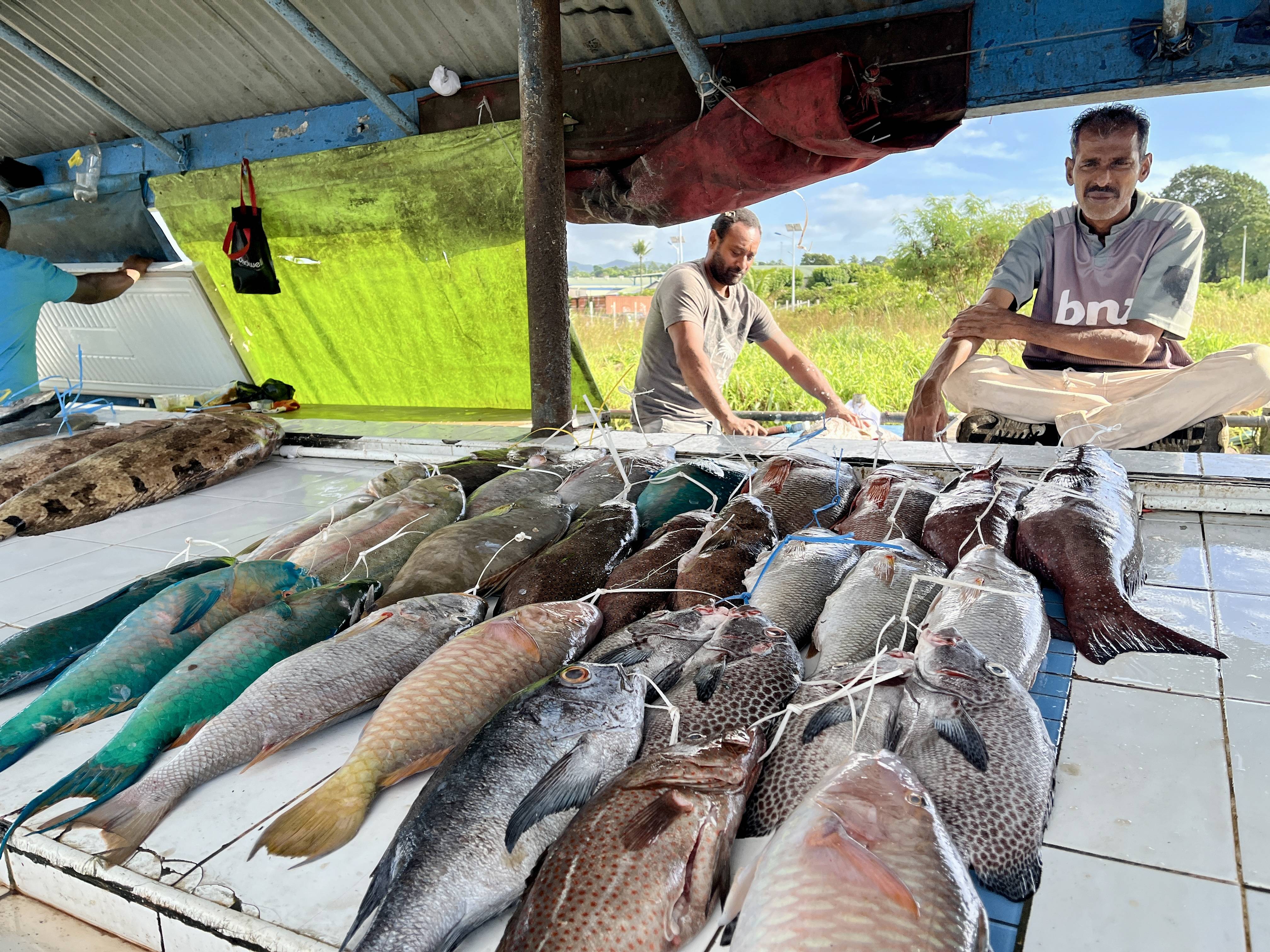
The Pacific Small Island Developing States (SIDS) Consultation Meeting on the Pre-Zero Draft of the New Declaration on Reduce, Reuse and Recycle (3R) and Circular Economy (2024-2034) was held on 14th – 15th May 2024 in Apia, Samoa. This meeting was co-organized by the Secretariat of the Pacific Regional Environment Programme (SPREP) and the United Nations Centre for Regional Development (UNCRD) of the Division for Sustainable Development Goals (DSDG)/UN Department of Economic and Social Affairs (DESA) and supporting partners.
This new Declaration is a voluntary commitment of Asia-Pacific countries to integrate sustainable consumption and production (SCP) actions and circular economy (CE) principles into their overall policy, planning, and development, in alignment with their commitment to Sustainable Development Goals (SDGs) and the Paris Agreement, among others. The new declaration is expected to be discussed and agreed upon at the 12th Regional 3R and Circular Economy Forum, to be hosted by the Government of India in late 2024.
In the Pacific consultation meeting, representatives of governments from the Pacific Island Countries (PICs) and regional partners discussed issues of importance to the Pacific and the global and local solutions needed towards achieving resource-efficient, resilient, circular, and low-carbon economies tailored to the unique context of the region. Various programmes in the Pacific led by SPREP and supported by partner organizations were presented, aiming to support PICs in the transition to 3R and Circular Economy.
The SWITCH-Asia Pacific session, Emerging Opportunities in Promoting SCP and Circularity Approaches to Accelerate Transition Towards Sustainability in the Pacific Island Countries, highlighted the importance of SCP and CE as drivers through a systemic approach to sustainably manage natural resources and minimize waste and pollutants in the production and consumption of services and related products, to respond to basic needs and well-being for all.
Mr. Maurizio Cian, Head of Cooperation of the Delegation of the European Union for the Pacific, stated, “This is an opportunity for Pacific Island Countries to discuss the framework on addressing important issues, such as resource availability constraints, waste and pollution, reliance on imported goods, the region's vulnerability to climate change, and the need for sectors such as agriculture, fisheries, tourism, and other services to shift towards SCP and circularity.”
He noted that under the EU Green Deal and Global Gateway, the EU continues to provide support to PICS on implementing their 2050 Blue Strategy for the Pacific Continent through EU-supported programmes, such as the EU SWITCH-Asia initiative, recently expanded to Pacific countries.
Dr. Zinaida Fadeeva, Team Leader of the SWITCH-Asia Policy Support Component (PSC), presented how circular economy could be defined through guiding principles as a means for achieving net zero for climate, nature, and the environment. She highlighted that shifting to SCP and circular approaches could create opportunities for fostering green business, innovation, and community engagement tailored to the Pacific countries. She also introduced the EU SWITCH-Asia Pacific Programme and its ongoing support to Pacific countries through its grants scheme and technical advisories, focusing on two priority issues: sustainable food systems and enhancing Nationally Determined Contributions through SCP.
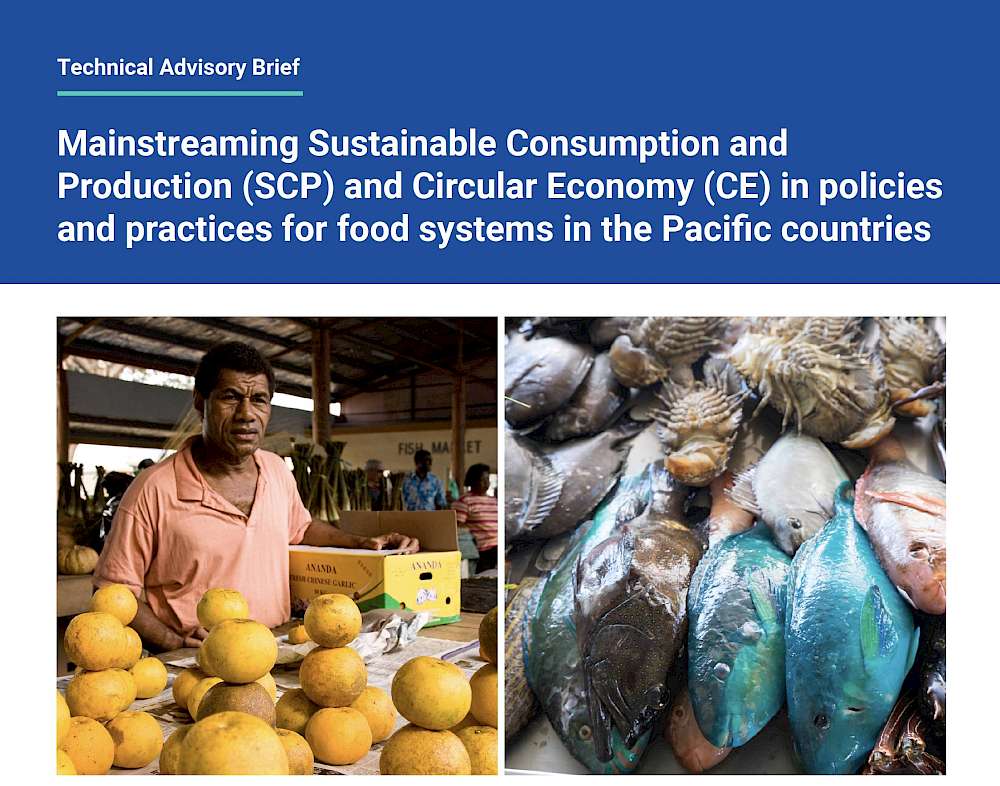
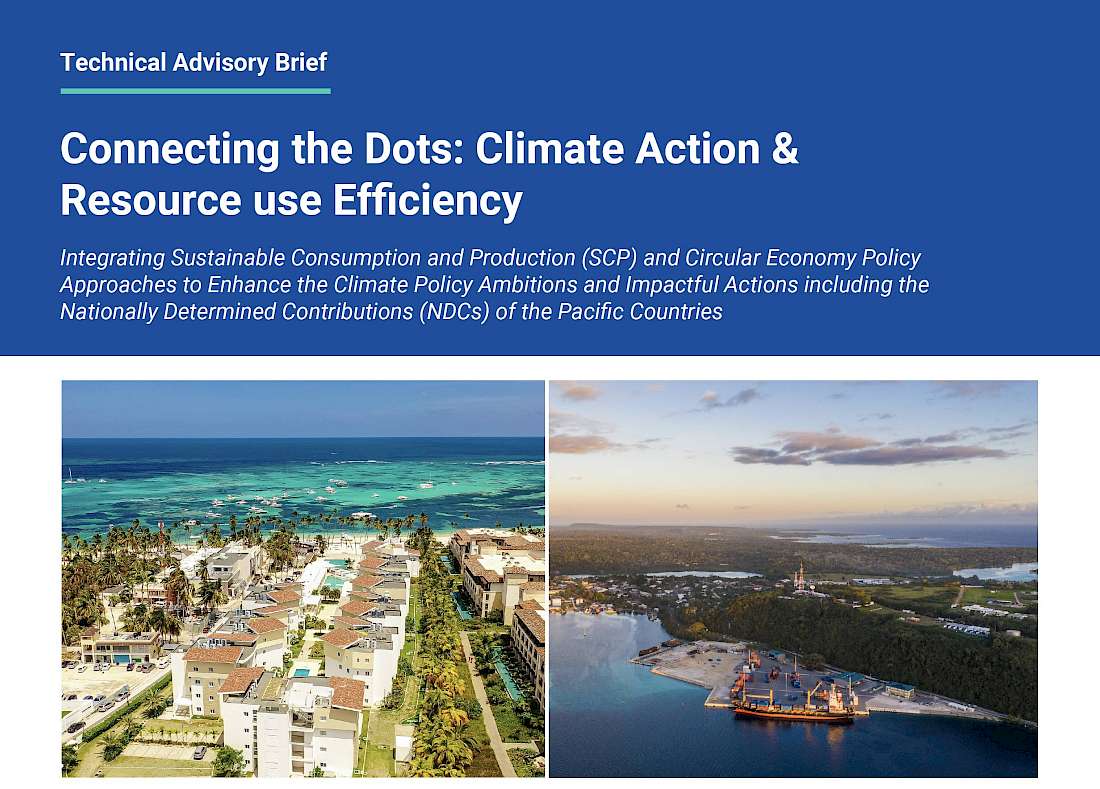
Dr. Arab Hoballah from the SWITCH-Asia PSC emphasized the importance of supporting Micro-Small and Medium Enterprises (MSMEs) to accelerate the delivery of circular economy objectives, climate change targets, and SDG goals. He highlighted the role of stakeholders in the supply chain ecosystem, both private and public, in incentivizing and supporting MSMEs in the region to achieve these objectives. He stressed that multi-stakeholder actions are needed to ensure the acceleration and scaling up of innovative actions in SCP and CE towards collective transformative impact.
Regional perspective on the issue were presented from the Pacific Community (SPC) and the University of the South Pacific (USP), Ms. Aude Chenet from SPC emphasised the opportunities for collective action and potential collaboration with other partners to support countries in the region in SCP and circular economy policy development, particularly at the nexus of food, climate, energy, and water, with SCP providing the scientific foundation and support for market-based solutions. Mr. Awnesh Singh, from USP highlighted the importance of educating and empowering consumers to make informed choices to catalyse market transformation towards sustainability and educating the younger generation, to instil values of environmental stewardship leading to positive change.
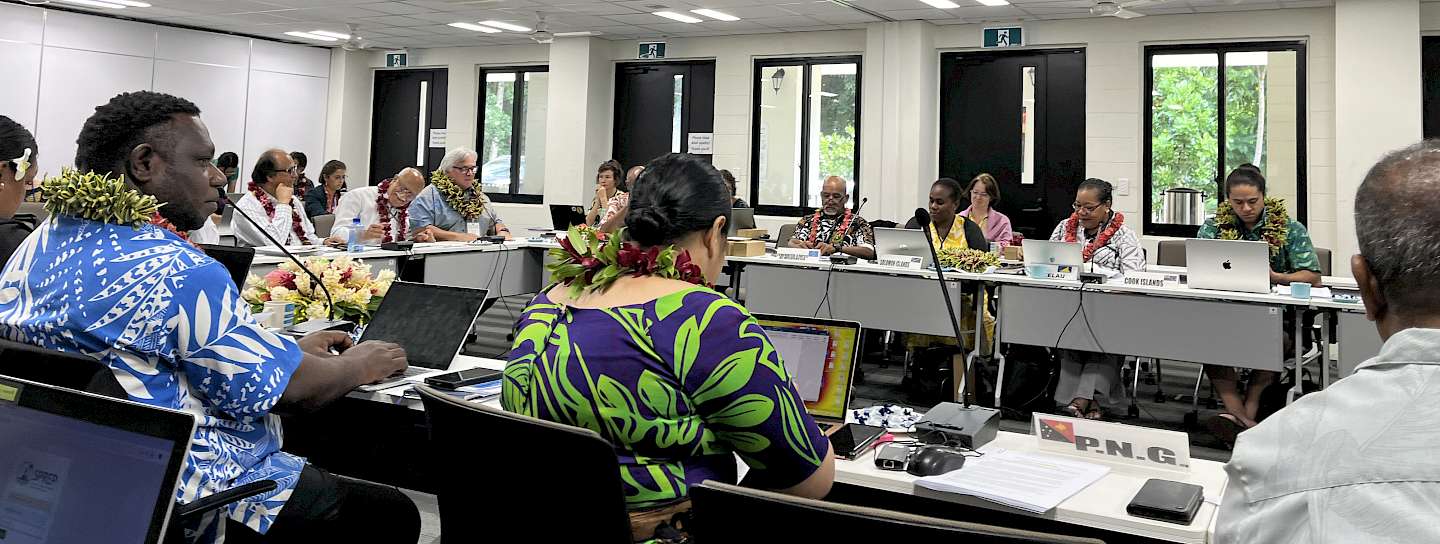
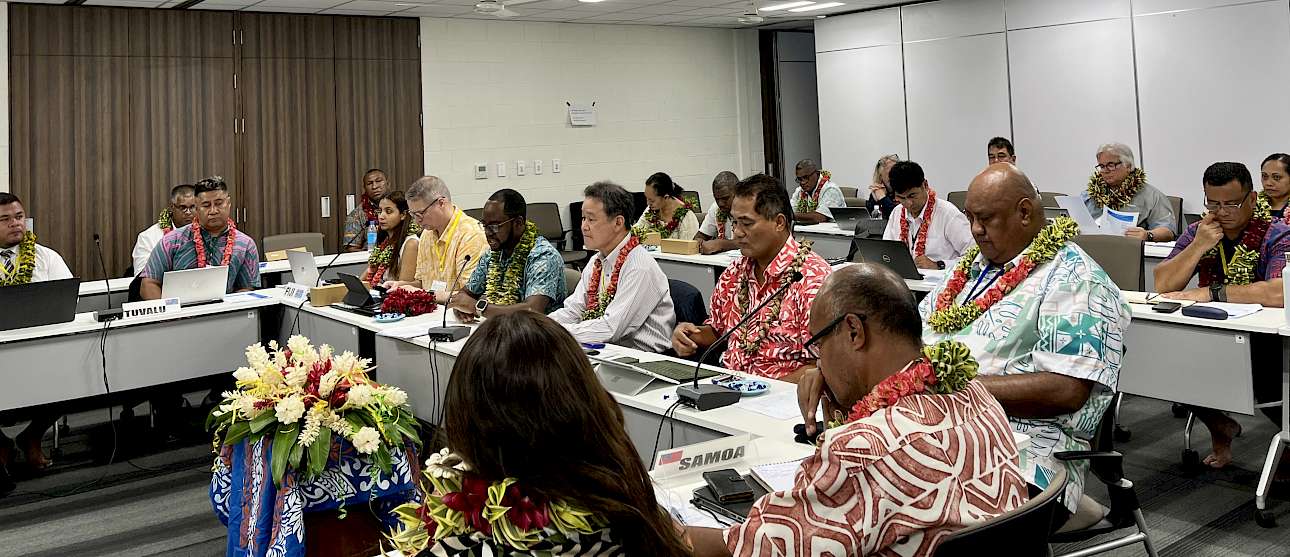
Country representatives provided their interventions regarding their issues and priorities. Papua New Guinea stated the opportunity to develop SCP and CE policies and practices, particularly related to commitments towards mitigation actions and the SDGs. Vanuatu highlighted the importance of improving and developing potential green production services and scaling up science-based information and capacity of concerned stakeholders to achieve their targets. Tuvalu mentioned the need to address waste accumulation and provide support on implementing solutions in the country. Wallis and Futuna highlighted the need for governance at the highest level to implement policies and for Pacific countries to support each other in promoting sustainable products.
Mr. Choudhury Rudra Charan Mohanty from UNCRD and Dr. Fadeeva closed the session stating the opportunities to continue the discussion with the countries to support their transition to SCP and CE.


